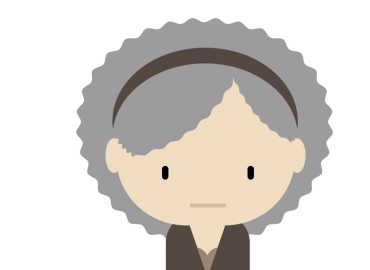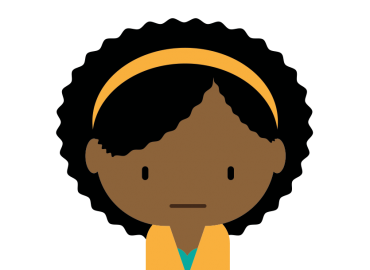Phil Trumm
Expand the elements to view the case or download a printable version with the big orange button!
Phil Trumm is a 22 year old male medical student presenting to the Infectious Disease ward who has recently returned from his elective. He is feeling generally unwell.
Please take a history from Phil, focusing on risk factors for this presentation. You will then be asked to undertake a focused examination of a system, before discussing certain aspects of the case.
You are a 22 year old medical student called Phil Trum. You have recently returned from your elective in Tanzania – it was brilliant! However, you have been feeling absolutely rubbish for the past two days. You have a fever, headache, muscle pains, cough, diarrhoea and abdominal pain.
HPC: The symptoms began about two days ago, during your first week of clinical attachments of your final year of medical school. You developed a horrible headache over the course of a few hours and had to go home early. At the time, you reckoned that it was a delayed hangover – you had one or two drinks on a quiet night out at the weekend.
The headache is all over the place and not worse on bending, coughing or looking at bright lights. You have not noticed any neck stiffness – this was the first thing you looked out for! Nothing seems to make it better or worse and you would rate it 6/10. You’ve searched your body for a rash – even getting your girlfriend to have a look(!) – but haven’t spotted anything.
Around the same time you started to get diarrhoea. You went to the toilet 4 times yesterday and your stool was very runny. It is yellow/brown in colour and you have not noticed any blood or mucus. You have also had a generalised, cramping abdominal pain for the past two days. It does not spread anywhere, nothing seems to make it better or worse and you would rate it 5/10. Your flatmate cooked his infamously dodgy vindaloo curry the other night, which you thought might have been causing these symptoms. Now, however, you’re starting to worry that things might be a lot more sinister.
You have also had a dry cough, which started around the same time as the other symptoms. You have not brought up any phlegm or blood and you are not short of breath or experiencing chest pain. You have also felt very feverish over the past two days. You notice that it seems to come in waves where you feel hot and cold and go very shaky. You have also felt very weak and all of your muscles ache as if you had the flu.
PMH: You had asthma and eczema as a child but have since grown out of it.
DH: You are on no current medication and you have no drug allergies.
FH: You have no relevant family history
SH: You have never smoked and you only drink on a Saturday night when you go out with your housemates and drink “a few trebles”. You have never used any IV drugs. You returned from your elective one week ago. You spent 8 weeks in rural Tanzania where you were providing medical aid to small villages. You stayed in a hut in the village with the rest of the medical team. It was a really rewarding experience and you really feel that you made a big difference to the lives of the local people.
You then travelled to Zanzibar for another two weeks with your friends, where you stayed in a backpacker’s hostel. You made sure to take your malaria prophylaxis tablets and use a mosquito net at night, although you did sometimes forget to put on insect repellent during the day. You did not go swimming in any freshwater lakes or go on any hikes while you were there. You did take part in some watersports (waterskiing and scuba diving) whilst in Zanzibar. You do not think it was anything you ate as you ate the same as your friends and they are not ill. You did not have any sexual contact – your girlfriend back home would kill you! - or take any illicit drugs whilst you were abroad. You’ve never had any needlestick injuries, thankfully. You had all of your immunisations before you went.
ICE: Originally, you thought this was just a bit of a hangover, or food poisoning. However, one of the other students suggested that you might have picked this up on your elective, and this has made you terrified and present straight away. Your main worry is that, because you are so tired all the time at the moment, this could be Trypanosomiasis, African Sleeping Sickness. You keep going over and over again in your head whether you were bitten by any dodgy flies. You are worried because you feel very ill and this is making you miss the beginning of your final year of medical school. You would like to know what is causing this illness and receive treatment as soon as you can so that you can return to your studies.
The student should take a focused infection history, covering all risk factors for infection including a travel history, contacts, occupation, animal contacts and sexual history. There may be a multitude of relevant examinations, however gastrointestinal examination perhaps would be most relevant. Thorough inspection would be important, regardless of the examination, therefore a dermatological examination may also be relevant.
Ask the student to present their findings and their differential diagnosis, which should sound similar to the following: “My differential diagnosis would consist of infective causes. Specifically, the most likely diagnosis would be malaria, given the pattern of pyrexia and travel history. I would also want to consider other mosquito-related infections, such as dengue fever or chikungunya. The loose stools may also be caused by an infective gastroenteritis, which could be viral or bacterial in nature.”
Points for discussion: • What are the causative organisms of malaria and what is the pathogenesis of this disease? • What investigations are diagnostic for malaria ? • What is the management for the different types of malaria? • What are some of the complications of this disease? • How can we prevent malaria in the first place? • What are the vectors for shistosomiasis, leishmaniasis and trypanosomiasis?





